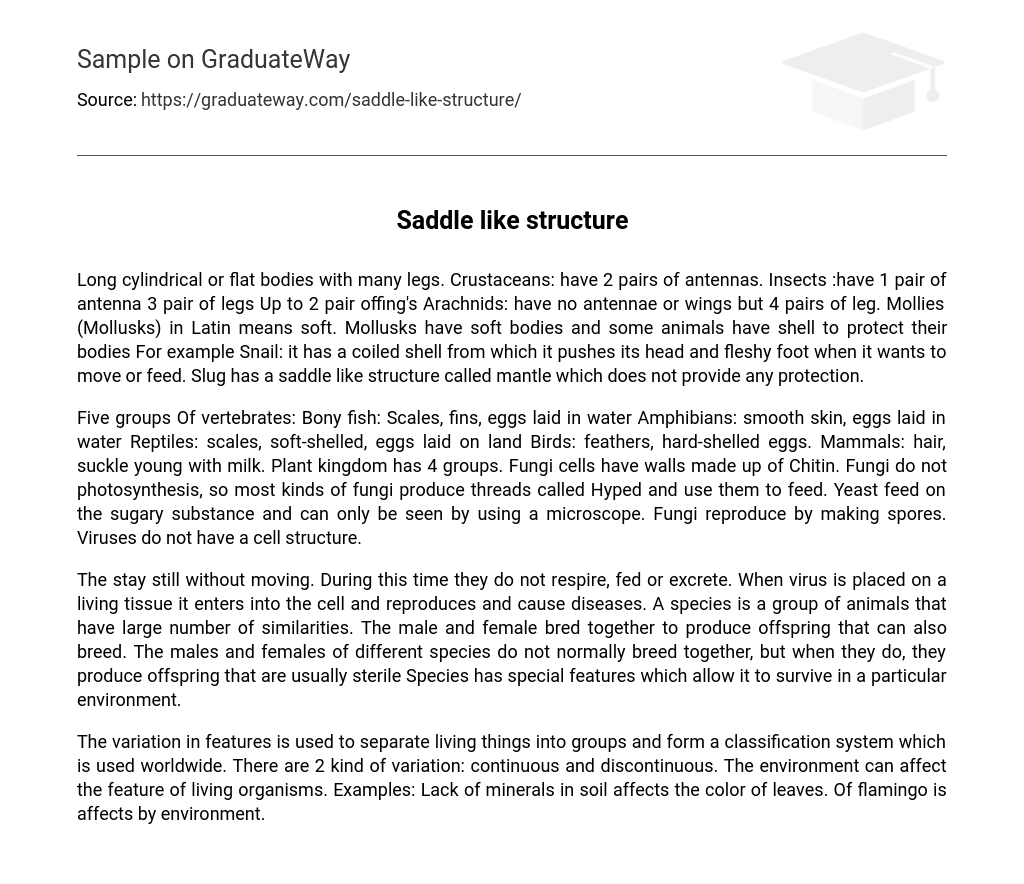Long cylindrical or flat bodies with many legs. Crustaceans: have 2 pairs of antennas. Insects :have 1 pair of antenna 3 pair of legs Up to 2 pair offing’s Arachnids: have no antennae or wings but 4 pairs of leg. Mollies (Mollusks) in Latin means soft. Mollusks have soft bodies and some animals have shell to protect their bodies For example Snail: it has a coiled shell from which it pushes its head and fleshy foot when it wants to move or feed. Slug has a saddle like structure called mantle which does not provide any protection.
Five groups Of vertebrates: Bony fish: Scales, fins, eggs laid in water Amphibians: smooth skin, eggs laid in water Reptiles: scales, soft-shelled, eggs laid on land Birds: feathers, hard-shelled eggs. Mammals: hair, suckle young with milk. Plant kingdom has 4 groups. Fungi cells have walls made up of Chitin. Fungi do not photosynthesis, so most kinds of fungi produce threads called Hyped and use them to feed. Yeast feed on the sugary substance and can only be seen by using a microscope. Fungi reproduce by making spores. Viruses do not have a cell structure.
The stay still without moving. During this time they do not respire, fed or excrete. When virus is placed on a living tissue it enters into the cell and reproduces and cause diseases. A species is a group of animals that have large number of similarities. The male and female bred together to produce offspring that can also breed. The males and females of different species do not normally breed together, but when they do, they produce offspring that are usually sterile Species has special features which allow it to survive in a particular environment.
The variation in features is used to separate living things into groups and form a classification system which is used worldwide. There are 2 kind of variation: continuous and discontinuous. The environment can affect the feature of living organisms. Examples: Lack of minerals in soil affects the color of leaves. Of flamingo is affects by environment.





